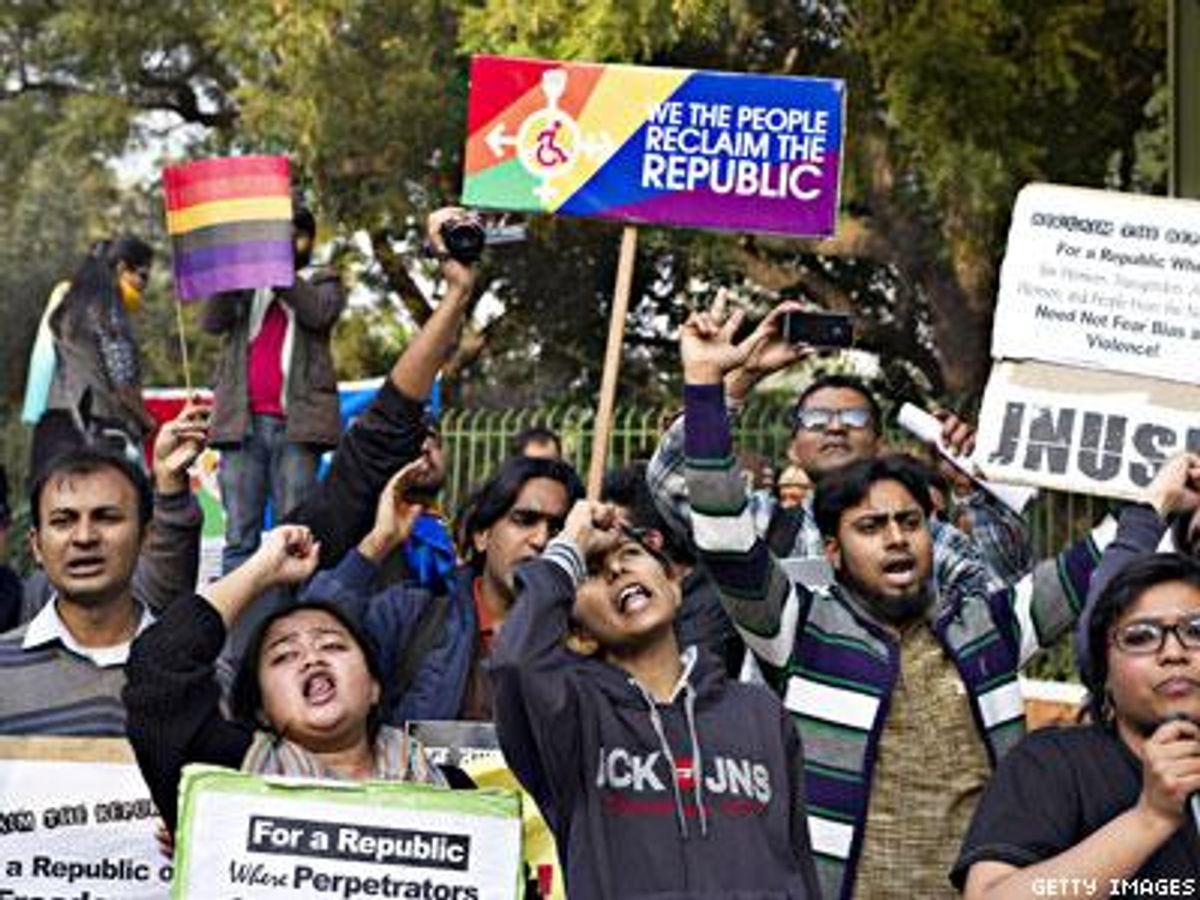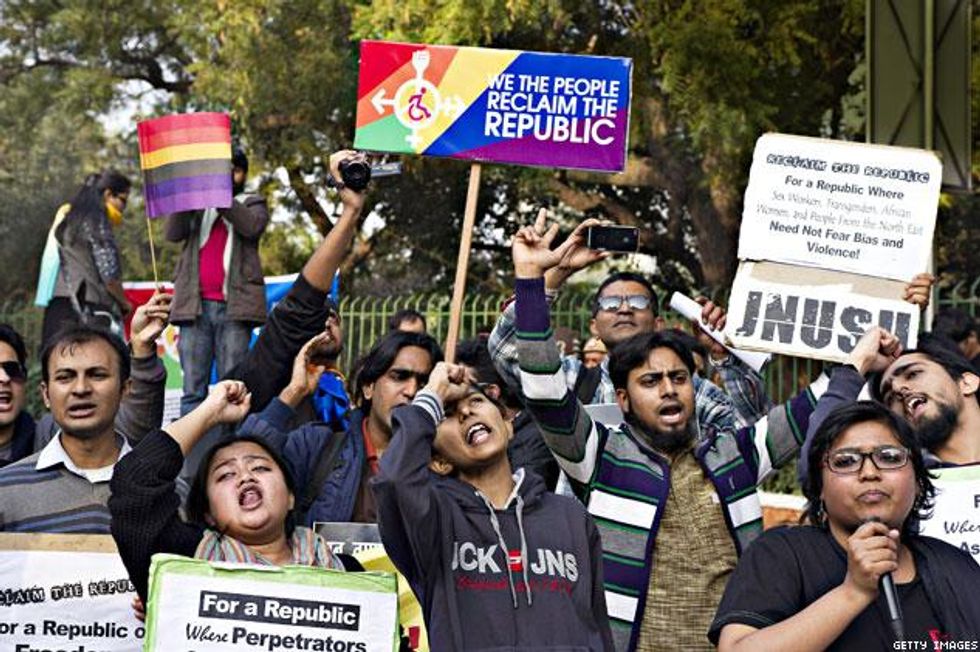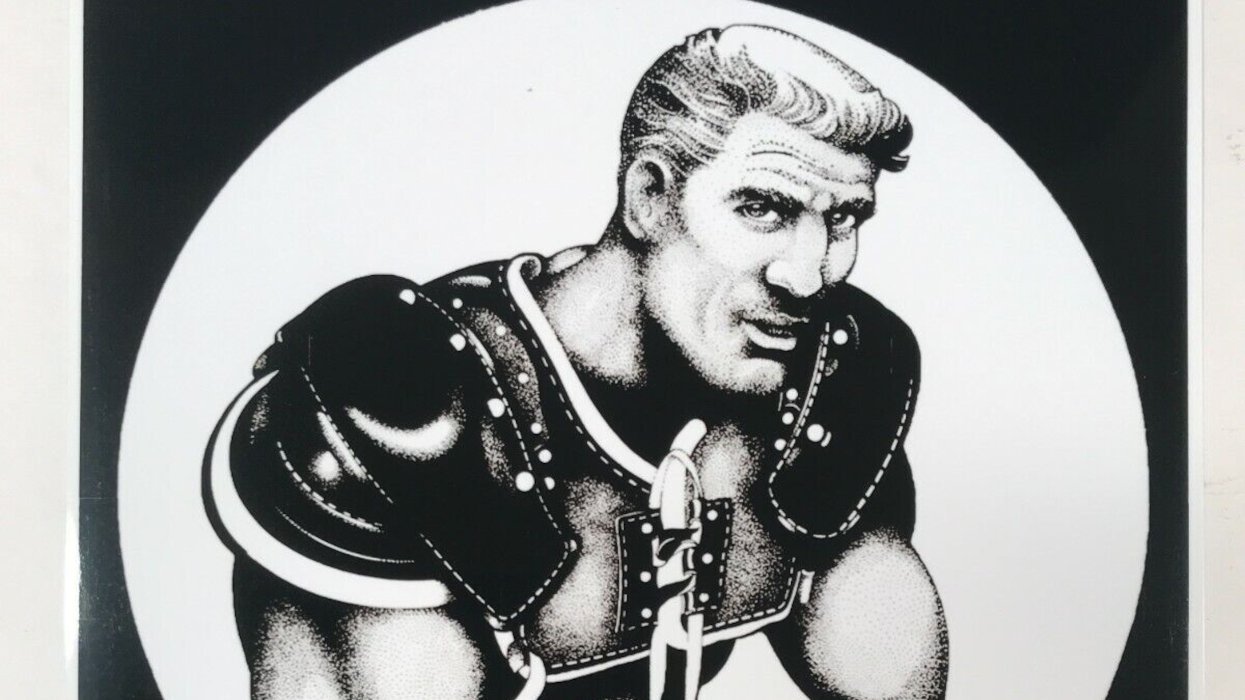 LGBT's and progressives march in India's 65th Republic Day in Delhi on January 26
LGBT's and progressives march in India's 65th Republic Day in Delhi on January 26The rise of antigay laws around the world has focused international media attention on the dramatic and often violent effects of homophobia. With reports of harassment, arrests, and the targeted killing of lesbian, gay, transgender, and bisexual people, the direct consequences of these laws have been made horrifically clear.
While world leaders, including United Nations Secretary-General Ban Ki-moon and U.S. Secretary of State John Kerry, increasingly condemn these pieces of legislation, few have spoken on the issue outside of a human rights or moral framework. This moral positioning has prompted other leaders to defend their antigay laws on the basis of sovereignty and cultural values, fueling a culture war that has proven largely ineffective at convincing governments to repeal these laws.
Recent academic studies are using new sources and methodologies to push past moral arguments about homosexuality to show that forms of structural stigma -- antigay cultural norms and laws that target sexual minorities -- may have widespread, systemic effects on society that aren't always apparent at first glance. These studies show that homophobia may significantly stunt economic growth, and may even be harmful to your health.
Data scientists and economists gathered at a recent World Bank panel to answer this question. They emphasized the importance of having hard data to support the argument that LGBT rights are not just a moral issue, but that structural stigma may undermine economic growth. At the event, professor of economics and prominent activist M.V. Lee Badgett presented her preliminary findings in a case study examining the economic effects of homophobia in India. Focusing on LGBT social exclusion -- through imprisonment, job loss, harassment in school, or pressure to marry -- Badgett projected that homophobia could be costing India as much as $30.8 billion a year, or 1.7 % of the country's gross domestic product, figures that could be just the tip of the iceberg.
While the full impact of homophobia on a country's economy is not easily modeled and current analyses are incomplete due to lack of research, attempts to close the data gap with studies like Badgett's must be undertaken to uncover the complete economic costs of homophobia.
The benefits of overturning antigay laws and eliminating homophobia are not limited to economics; it may also be key to improving community health for sexual minorities in the United States.
A new study published in Social Science and Medicine identified a strong correlation between locations with antigay prejudice and higher mortality rates among sexual minorities in the United States. That's right: Antigays laws, such as those that prohibit same-sex marriage, may be shortening life spans. While the study does not detail specific case studies or locations, it does provide a methodology for examining prejudice and mortality. Examining this new set of data, it's clear that suicide, homicide, and cardiovascular disease are substantially elevated among sexual minorities in high-prejudice communities.
As government agencies remain unmoved by moral arguments in support of LGBT social justice, evidence of the more subtle effects of antigay laws -- including those that highlight their ramifications on economics and health -- may appeal to audiences once outside of the influence of activists.
Providing the quantifiable effects of homophobia will allow policy makers, economists, and global leaders to better understand that antigays laws ultimately do more harm than good, to LGBT people and the population at large.


 LGBT's and progressives march in India's 65th Republic Day in Delhi on January 26
LGBT's and progressives march in India's 65th Republic Day in Delhi on January 26